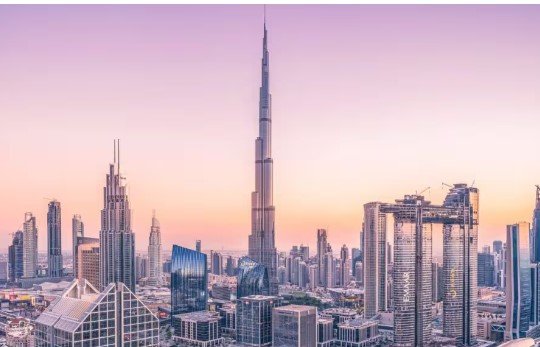Navigating Dubai’s Real Estate Market: Insights for Property Managers

Dubai, the jewel of the Middle East, stands as a testament to modern architecture, luxury living, and a burgeoning economy that attracts investors and residents from around the globe.
At the heart of this dynamic city lies its real estate market, a labyrinth of opportunities and challenges that property managers must navigate with finesse and insight.
In this comprehensive guide, we delve into the intricacies of Dubai’s real estate landscape, offering invaluable insights and strategies for property managers aiming to thrive in this competitive environment.
Understanding Dubai’s Real Estate Market
Dubai’s real estate market is characterized by its rapid development, diverse portfolio of properties, and a regulatory framework designed to attract international investment.
From iconic skyscrapers lining the Marina to luxurious villas nestled in exclusive neighborhoods like Emirates Hills, Dubai offers a spectrum of residential and commercial properties catering to various preferences and budgets.
The market is influenced by both local and global economic factors, including oil prices, geopolitical stability, and macroeconomic policies.
Understanding these dynamics is crucial for property managers to make informed decisions and capitalize on market trends.
Read also: Navigating the Capital Landscape: Strategies for Real Estate Financing
Regulatory Framework and Legal Considerations
Navigating Dubai’s real estate sector begins with a clear understanding of the regulatory environment.
The Dubai Land Department (DLD) oversees property registration and regulation, ensuring transparency and investor protection.
Property managers must stay abreast of legislative updates, such as changes in rental laws or foreign ownership regulations, which can significantly impact property operations and investment strategies.
Additionally, familiarity with strata laws governing community management and service charge regulations is essential for maintaining efficient property management practices and ensuring compliance with local statutes.
Market Trends and Economic Indicators
Successful property management hinges on the ability to interpret market trends and economic indicators accurately.
Key metrics such as rental yields, occupancy rates, and property price indices offer valuable insights into demand-supply dynamics and investment potential across different sectors of the market.
Dubai’s real estate market exhibits cyclical patterns influenced by factors such as global economic conditions, regional stability, and local market sentiment.
Property managers equipped with data-driven analysis and market intelligence can anticipate shifts in demand, optimize rental pricing strategies, and identify emerging investment opportunities.
Operational Excellence in Property Management
Efficient property management is synonymous with operational excellence. From tenant acquisition and lease management to maintenance and financial oversight, property managers play a pivotal role in enhancing property value and tenant satisfaction.
Implementing robust operational protocols and leveraging technology-driven solutions, such as property management software and IoT-enabled facilities management systems, can streamline workflows, optimize resource allocation, and mitigate operational risks.
Moreover, fostering proactive communication with tenants and cultivating strong landlord-tenant relationships are instrumental in minimizing vacancies and maximizing rental yields.
Sustainability and Green Building Initiatives
In recent years, sustainability has emerged as a pivotal consideration in Dubai’s real estate landscape.
With the government’s commitment to promoting green initiatives and achieving carbon neutrality by 2050, property managers are increasingly embracing eco-friendly practices and integrating sustainable technologies into property operations.
Certifications such as LEED (Leadership in Energy and Environmental Design) and Estidama play a pivotal role in enhancing property value, reducing operational costs, and attracting environmentally conscious tenants.
Property managers can capitalize on the growing demand for sustainable living spaces by implementing energy-efficient measures, water conservation strategies, and waste management solutions.
Tenant Experience and Community Engagement
Enhancing tenant experience and fostering community engagement are integral to maintaining high occupancy rates and ensuring long-term tenant satisfaction.
Property managers can differentiate their offerings by prioritizing amenities that cater to modern lifestyles, such as fitness centers, recreational facilities, and co-working spaces.
Moreover, organizing community events, promoting cultural diversity, and supporting local initiatives contribute to a vibrant and cohesive community environment.
By nurturing a sense of belonging among residents and fostering a positive living experience, property managers can cultivate loyalty and minimize tenant turnover.
Emerging Technologies and Innovation in Property Management
The convergence of technology and real estate is reshaping property management practices in Dubai. Innovations such as artificial intelligence (AI), blockchain, and smart building solutions are revolutionizing operational efficiency, predictive maintenance, and tenant engagement.
AI-powered analytics enable property managers to gain actionable insights from vast datasets, optimize asset performance, and anticipate maintenance needs proactively.
Blockchain technology enhances transparency in property transactions, streamlines lease agreements, and facilitates secure payment processing, thereby fostering trust and efficiency in real estate transactions.
Furthermore, smart building technologies, encompassing IoT sensors, energy management systems, and automated controls, empower property managers to optimize resource consumption, reduce operational costs, and enhance occupant comfort and safety.
Conclusion
In conclusion, Dubai’s real estate market presents a wealth of opportunities for property managers equipped with industry knowledge, operational expertise, and a proactive mindset.
By understanding regulatory frameworks, interpreting market trends, embracing technological innovations, and prioritizing tenant experience, property managers can navigate challenges effectively and capitalize on Dubai’s status as a global real estate hub.
As Dubai continues to redefine luxury living and urban excellence, property managers play a pivotal role in shaping the city’s skyline and delivering unparalleled experiences to residents and investors alike.
By embracing innovation, sustainability, and strategic foresight, property managers can position themselves at the forefront of Dubai’s thriving real estate industry, driving value creation and shaping the future of urban living in this dynamic metropolis.




